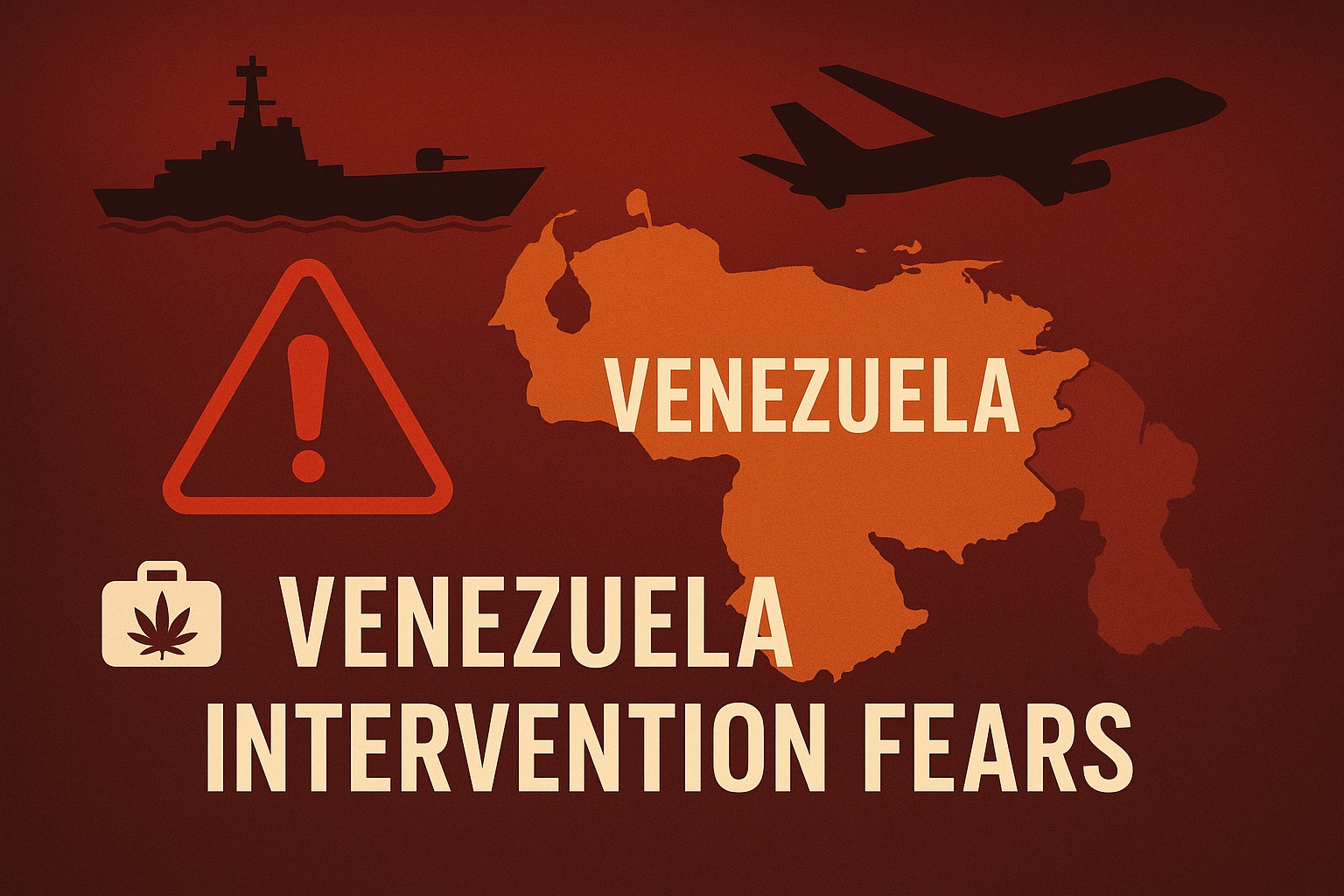Venezuela intervention fears: Alarming Signs of U.S. Escalation
The recent U.S. anti-drug operations have sent shock waves through Latin America, reigniting fears of potential Venezuela intervention. Analysts warn that what began as targeted strikes against criminal networks could escalate into broader military involvement, raising tensions in an already fragile region. This situation has global implications, from energy markets to international diplomacy.
Heightened military presence in the region
The surge of U.S. military assets near Venezuela’s borders signals a clear escalation. Surveillance flights, naval deployments, and intelligence-gathering operations have intensified over the past months. While officially framed as anti-drug measures, the increased footprint fuels speculation about possible intervention. For a deeper understanding of the geopolitical stakes, see the Council on Foreign Relations analysis.
Political instability within Venezuela
Venezuela’s domestic turmoil, including economic collapse, political rivalries, and social unrest, creates a volatile environment. Any foreign action no matter how limited could trigger unintended consequences. Citizens already facing scarcity and uncertainty are now confronted with fears of international military engagement, heightening humanitarian concerns.
Rhetoric from U.S. officials
Statements from U.S. authorities have emphasized the importance of combating drug trafficking but also hinted at broader strategic interests. Phrases such as “protecting regional stability” and “responding decisively” are interpreted by analysts as signals of potential escalation. The Venezuela intervention narrative is now shaping international media coverage and public opinion across the Americas.
Regional reactions and alliances
Neighboring countries and regional organizations have voiced concerns over possible intervention. The Organization of American States and leaders from Latin American nations have called for restraint and dialogue. Diplomatic tensions are increasing, and nations are re-calibrating alliances, fearing that unilateral U.S. actions could destabilize the entire region.
Historical precedents heighten anxiety
History offers multiple examples of U.S. interventions in Latin America under the guise of anti-drug or anti-terror operations. From the 1980s in Central America to more recent operations in the Caribbean, these precedents amplify concerns that current actions may not remain limited. Understanding past outcomes provides insight into why experts and citizens alike are anxious about potential escalation.
Economic and humanitarian consequences
Any Venezuela intervention could have dramatic economic repercussions. Oil markets, already sensitive to instability, may experience price shocks. Humanitarian access could be further restricted, worsening food and medical supply shortages. International agencies are preparing contingency plans to mitigate potential crises.
Impact on regional security
Drug cartels and criminal networks often exploit instability. Increased military presence or intervention could disrupt local power dynamics, potentially leading to short-term violence spikes. Regional security organizations are monitoring the situation closely, assessing the risks to civilian populations and cross-border stability.
International diplomatic pressure
Global powers, including the European Union and Latin American partners, have urged the U.S. to pursue diplomatic solutions rather than unilateral actions. Multilateral dialogue is viewed as essential to prevent miscalculations that could escalate into broader conflict. Engaging in diplomacy may reduce fears of full-scale Venezuela intervention.
Media narratives and public perception
Media coverage has amplified fears by highlighting military movements, political statements, and historical parallels. Public perception, both in Venezuela and internationally, is increasingly concerned about potential escalation. Accurate reporting and analysis are crucial to prevent panic and misinformation from shaping policy decisions.
Conclusion
The convergence of military escalation, political instability, regional reactions, and historical precedents has heightened fears of Venezuela intervention. While current operations are officially limited to anti-drug measures, the risk of broader involvement cannot be ignored. Policymakers, analysts, and citizens must remain vigilant, advocating for diplomacy and transparency to avoid unintended consequences in this volatile region.
Internal Link Example
For insights on U.S. foreign policy in Latin America, see our guide on U.S. foreign policy strategies.




